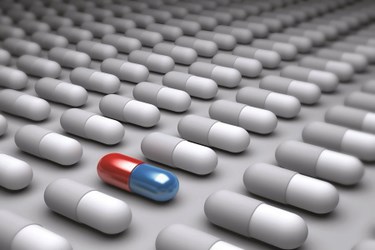ABPI, BIA Release FAQ And Guide To Biosimilars

As biosimilars rise to prominence in the pharmaceutical industry, the Association of the British Pharmaceutical Industry (ABPI) and the Bioindustry Association (BIA) have jointly worked on developing materials on biological drugs including biosimilars. The documents include a guide to the medicines and a collection of frequently asked questions.
By definition, biological medicines are derived from a living biological system. These include enzymes, hormones, antibodies, blood factors, vaccines, and advanced therapies, such as cell and gene products. Biosimilars are products similar but not identical to an approved reference biological medicine. Since its introduction, biologics have advanced treatments for a number of life threatening and rare diseases such as diabetes, cancer, multiple sclerosis, and others.
More than 18 branded biosimilars have received marketing approval in the EU. In the UK alone, the number of biosimilars is expected to grow with new medicines being developed for a wider range of therapy areas including autoimmune diseases. The ABPI and BIA forecast that by 2016 seven out of the top 10 drugs in the world will be biologics.
The organizations recommend that all biologics and biosimilars be prescribed by its brand name to guarantee accurate reporting and analysis of any possible adverse events. Automatic substitution of biologics and biosimilars is also discouraged and should only be carried out under the supervision and consent of a physician.
ABPI Director of Value and Access Paul Catchpole said, “A number of ABPI and BIA members are developing biosimilar medicines and we are therefore building relationships with key stakeholders at a national and local level in order to improve understanding of biological medicines, including biosimilar medicines.” Catchpole said that the documents aim to assist all stakeholders in using biologics and biosimilars properly for NHS patients. The ABPI recently celebrated a decade of collaboration between NC3Rs (new technologies and approaches to reduce, replace and refine the use of animals in scientific research [3Rs]) and the pharmaceutical industry. The organization said it is renewing its partnership with the NC3Rs for the fourth time and for three more years.
BIA CEO Steve Bates said, “Biological medicines, including biosimilar medicines, have complex molecular structures and unique manufacturing processes... For this reason the BIA has been actively engaged in the development of EMA guidelines on biosimilar medicines, including biosimilar monoclonal antibodies, over a period of many years, highlighting the issues to be addressed and ensuring that patient safety remains paramount.” Bates said that he hoped the papers will help raise awareness and comprehension of the challenges of biosimilars with its introduction to the NHS. BIA recently won the 2014 Trade Association Forum (TAF) Conference of the Year award earlier this month.
